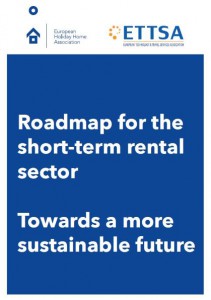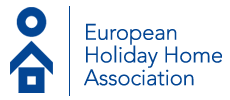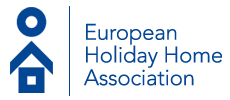 Towards a more sustainable future
Towards a more sustainable future
Deeper Understanding, Fairer Rules, Pro-active Cooperation
More than ever before, travellers book an apartment, a house or just a room for holidays and business purposes. Short term rentals are the largest leisure accommodation form in Europe, valued at 35bn EUR in 20161.
Along with the rapid growth in popularity of short-term rental (STR) services, a plethora of complex rules and obligations have emerged. While we understand the need to regulate STR services where justified to protect an ‘overriding reason of general interest’2, and support the need to overcome regulatory fragmentation through the establishment of a harmonised framework, we believe that everybody is best served by free and open competition based on clear, proportionate and non-discriminatory principles.
The STR sector calls for decision-makers across the EU to better-understand the sector’s specificities and impact, and to cooperate more proactively to ensure a balanced development of STR services for the benefit of all stakeholders, i.e., hosts, travellers, industry and society at large.
The STR sector has welcomed the Commission’s initiative to organize workshops on the collaborative economy in the accommodation sector, with the participation of relevant stakeholders including Member States to discuss policies, applicable EU laws and to share best practices. The STR sector is convinced that sustainable growth is possible by ensuring a higher degree of regulatory consistency across the EU in compliance with the existing applicable regulatory framework, namely the Services and the E-Commerce Directives and the GDPR3,4.
As a sector, we will continue to work in good faith with policy-makers at all levels to help develop and enforce an adequate, fair and simple regulatory framework.
We are thus ready to commit to the following roadmap of actions and request the support of the Commission and all policy stakeholders in achieving these aims:
1
The STR sector is ready to exchange with the relevant authorities on the impact of STR services in their locality, including statistics relating to STR accommodation providers when in line with GDPR rules, and to cooperate on ways in which to address potential concerns.
2
The STR sector supports the sharing of existing best practices with a view to eventual solutions at national or EU level where justified and proportionate.
3
Where STR rules apply, the STR sector will inform hosts of these rules when they list their property.
4
Online STR platforms and property managers will provide tools to STR accommodation providers (individual hosts) to assist them in their compliance with local laws, for instance the provision of permit fields to allow accommodation providers to enter registration numbers where registration is in place.
5
Online STR platforms will provide tools to allow STR accommodation providers (individual hosts or property managers) to identify themselves as traders and non-traders.
6
Online STR platforms and property managers will take down any property where they have received effective knowledge of illegality from the enforcement authorities.
7
The STR sector will cooperate with public authorities in order to facilitate compliance by STR accommodation providers, including on issues of guest occupancy taxes, and on the reporting of host earnings. Best practices on how to create positive incentives for people to declare their personal income will be shared.
In order to successfully deliver on the above, the STR sector calls on the European Commission to act urgently to address the highly fragmented patchwork of local and national law currently applied to the sector and to act against national violations of the e-Commerce Directive, Services Directive, and Technical Standards Directive.
Trust and transparency are the driving force of the STR sector and we are committed to constantly delivering on these principles for the benefit of our customers and community.
1 PhoCus Wright’s report “Private Accommodation in Europe: 2010-2020”, 2017
2 Directive 2006/123/EC of the European Parliament and of the Council of 12 December 2006 on services in the internal market (the Services Directive)
3 Directive 2000/31/EC of the European Parliament and of the Council of 8 June 2000 on certain legal aspects of information society services, in particular electronic commerce, in the Internal Market (the E-Commerce Directive)
4 Regulation 2016/679 of the European Parliament and of the Council of 27 April 2016 on the protection of natural persons with regard to the processing of personal data and on the free movement of such data, and repealing Directive 95/46/EC (General Data Protection Regulation)

